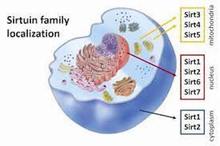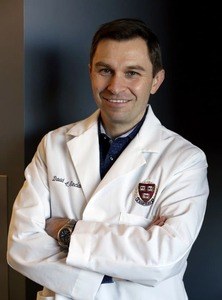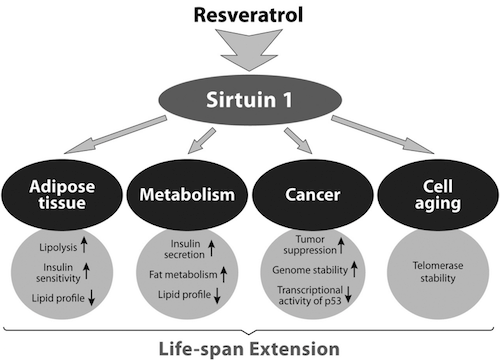Does Resveratrol Really Activate Sirtuins?

In this Resveratrol Update, I examine the proposition that resveratrol can activate sirtuins, those so-called “longevity genes”, which is widely held as true in the scientific literature. But the time has come to reevaluate that claim. Watch Dr. Brad Stanfield show evidence to the contrary.
Update: 2/18/2023
Resveratrol has been promoted as a thoroughly-tested anti-aging supplement due to it’s ability to activate sirtuins, which are a family of seven so-called “longevity genes” in mammals, like us. ‘
The most vocal supporter of resveratrol and sirtuins is a preeminent longevity scientists, Dr. David Sinclair, but he’s been getting push-back — a lot of it — from his fellow scientists.
Because resveratrol has become such a popular supplement, and sirtuins are often referred to as “longevity genes” that are activated by resveratrol, you should know there’s a considerable amount of dispute about this.
Read on…
Here’s what I cover in this post:
- Some history about resveratrol and sirtuins
- Scientists say sirtuins are not longevity genes and resveratrol does not activate them
- What is resveratrol, and why should I care about it?
- Resveratrol does not activate sirtuins, says Dr. Stanfield’s evidence
- Dr. Sinclair responds to Dr Stanfield’s resveratrol video
- Your takeaway
Let’s dive in…
Some History About Resveratrol and Sirtuins
One of the most highly visible proponents of resveratrol is Dr. David Sinclair, a tenured Professor of Genetics at Harvard Medical School and an expert researcher in the field of longevity. Back in the early 2000s, his lab indicated that resveratrol could activate sirtuins.
Based on the promise of those results, Dr. Sinclair co-founded a biomedical company called Sirtis Pharmaceuticals, which was purchased by the pharmaceutical giant GlaxoSmithKline for $720 million, from which Sinclair reportedly earned about $8 million.
Turns out that Glaxo couldn’t reproduce the results gotten by Dr. Sinclair’s lab, and after several years of trying, shut down the company.
As I wrote in the post Why Trans-Resveratrol Is The Best Resveratrol Supplement:
Sirtis sought to make drugs that act on sirtuins, a class of proteins that scientists believe play a role in aging, programmed cell death, and other key cell processes. It all looked good until it wasn’t. Glaxo shut down the company nearly five years after its acquisition.
Sirtris co-founder Dr. David Sinclair, a geneticist at Harvard Medical School, headed studies that indicated resveratrol and related compounds can activate sirtuins. For reasons as clear as mud, apparently, Glaxo and Sirtis couldn’t make good on the investment aimed at creating a resveratrol-like drug that activated sirtuins.
Dr. Sinclair got a lot of flack after Sirtis was shut down. He still thought that his lab’s experiments were accurate, and after licking his wounds for awhile after the Glaxo fiasco, went back to the lab and again produced similar results as before, which was that resveratrol did activate two of the seven sirtuins; namely, SIRT1 and SIRT2.
However, there still was a problem — other labs couldn’t reproduce Sinclair’s result that resveratrol activates sirtuins. And that brings us to various scientists and one medical doctor in partricular, Brad Stanfield, who have stood up and called foul.
Scientists Say Sirtuins are not Longevity Genes and Resveratrol does not Activate Them
Let’s start with Brad Stanfield, MD, a young medical doctor practicing
medicine in New Zealand and producing well-researched videos that explore longevity science on his YouTube channel, Extend Healthspan.
Like me, Dr. Stanfield believed that resveratrol did just what Dr. Sinclair says it does. Like Dr. Sinclair, Dr. Stanfield and I consumed resveratrol (actually, the trans-resveratrol form), and extolled its purported virtues. But unlike Dr. Sinclair, Dr. Stanfield and I are no longer convinced that resveratrol works as advertised, and consequently, we stopped taking it. Dr. Sinclair has not.
So, who is right — Sinclair or Stanfield?
Well, first off, Dr. Sinclair is not alone in pushing back against assertions made by Dr. Sinclair about resveratrol and sirtuins.
One of the scientists that discovered sirtuins, Dr. Charles M. Brenner, an award-winning biologist, has strongly asserted that the science does not back Sinclair’s claims, both on Twitter and in a paper he authored, Sirtuins are not conserved longevity genes, where he concluded:
While sirtuins carry out interesting biochemical reactions and perform important functions for organisms, their degree of regulation is modest compared to most other enzymes that function in the NAD system. In addition, the degree of hype, framing, and nonreproducibility in the sirtuin literature is persistently misleading. Dispassionate analysis of their functions does not support assignment as longevity enzymes or as principal mediators of the effects of NAD repletion.
Adding to the push-back, this time focusing on resveratrol, a systematic review and meta study published in 2021 concluded:
Most publications on animal models reported positive outcomes on cognition and brain function following exposure to resveratrol or grape seed extracts. By contrast, 11 meta-analyses of data from human placebo vs resveratrol, grape or wine treatment trials identified no statistically significant effect on a variety of measures, including cognitive and mood assessments, grey matter volume and blood pressure.
Based on currently available data, the promising effects of resveratrol in animal models is not replicated in human clinical trials. The effects, if any, of resveratrol on human cognition are likely to be small. This work may be useful for the design and implementation of future pre-clinical and clinical studies using resveratrol in a neurological setting.
So, what does the layperson do when brainy scientists battle it out?
I think what you do is follow the science and pay attention to the debate. However, in this case, so far Dr. Sinclair has not defended his lab results, except briefly, as I report below in the 11/5/22 Update.
UPDATE (11/5/22): In a video interview, Dr. Andrew Huberman asked Dr. Sinclair about this controversy. Sinclair said that in his labs’ experiments, mice fed a high-fat diet without resveratrol supplementation “lived a lot shorter” than mice on the same high-fat diet that included resveratrol; however, when “we gave [resveratrol] to [mice] on a normal diet, they just ate it when they wanted, and there wasn’t much effect.” He then says that the published paper about this experiment included “supplemental data… that nobody ever reads. The mice that were given resveratrol every second day on a normal diet live dramatically longer.” The conversation then gets into the value of “pulsing” nutraceuticals like resveratrol; meaning, taking it on alternative days: “If you give it to the mice every other day, we had mice living over three years.” (The average lifespan of lab mice is just over two years.)
Click here to watch the video, Slow and Reverse Aging
For the resveratrol content, begin at time stamp 42:30.
Keep what Dr. Stanfield said in mind as you watch Dr. Stanfield’s videos below, where he divulges why he has reversed course about resveratrol.
But first, let’s address why might you give a hoot about resveratrol to begin with?
What Is Resveratrol, And Why Should I Care About It?
If you’re not taking resveratrol and don’t intend to, or you’ve never heard about it, well, perhaps only your intellectual curiosity may lead you to wonder about what all the fuss is about.
Resveratrol is a stilbenoid, a type of natural phenol, which is mildly toxic and produced by numerous plants in response to ultraviolet radiation, injury, fungal or bacterial infection. Resveratrol is concentrated in the skin and seeds of these plants, and is thought to offer a remarkable range of beneficial biological activities, such as anticancer, cardioprotective, neuroprotective and antioxidant properties.
The commonly recognized problem with resveratrol has not been about whether it truly can activate sirtuins (those longevity genes), but that it’s not well absorbed into the bloodstream. So, all of the therapeutic benefits attributed to it are encumbered by its low bioavailability, and therefore its potential health benefits are blunted. The workaround regarding availability was to use a particular form of reseveratrol called trans-resveratrol, which is better absorbed.
OK, so now you have a form of resveratrol that’s bioavailable — especially if you consume it with a dietary fat, such as yogurt or olive oil — but that still leaves unanswered the question about whether resveratrol does all the benefical health benefits attributed to it, such as to activate sirtuins?
Dr. Stanfield offers evidence that resveratrol does not activate sirtuins, as you’ll soon see in the videos below.
Resveratrol Does Not Activate Sirtuins, Says Dr. Stanfield’s Evidence
This is what Dr. Stanfield covers in his first video:
2003 paper published by Dr. Sinclair’s lab indicated that resveratrol is a potent activator of sirtuin 1 (SIRT1) of the seven sirtuin genes (also referred to as enzymes or proteins). This was done in a petri dish.
In 2006, the Sinclair lab published a paper that indicated that resveratrol improves health and survival of obese mice on a high-calorie diet. It was this discovery that led GlaxoSmithKline to purchase Sirtis.
In a paper published in 2011, researchers tried to replicate the Sinclair lab’s results, and found that when the genetic background of the subjects were standardized, and appropriate controls were used, there were no benefits seen for either worms or flies. They also found that the benefits from calorie restriction had nothing to do with the SIRT2 gene, leading the researchers to conclude that resveratrol did not activate sirtuins.
At time stamp 3:22 in the video below, in an interview with Peter Attia, MD, biogerontologist Dr. Matt Kaeberlein agrees that resveratrol can activate sirtuins in yeast, but not in the other life forms studied — and furthermore, whether activated or not, lifepan extension was not observed, as indicated by the Sinclair lab. Dr. Kaeberlein goes on to say that “nobody to my knowledge has ever been able to replicate that initial study from the sinclair lab where they claimed lifespan extension from resveratrol”.
Finally, a 2020 paper using the latest CRISPR technology found that resveratrol does not activate SIRT1; moreover, there is published research indicating that resveratrol might increase cholesterol levels and blunt the beneficial effects of exercise.
Now that you’ve got the basics of the story, watch Dr. Stanfield’s video where you can get more details and see the studies cited:
Click here for list of Dr. Stanfield's references
https://www.ncbi.nlm.nih.gov/pmc/arti… https://www.ncbi.nlm.nih.gov/pmc/arti… https://www.ncbi.nlm.nih.gov/pmc/arti… https://pubmed.ncbi.nlm.nih.gov/12939… https://xconomy.com/boston/2013/03/12… https://www.ncbi.nlm.nih.gov/pmc/arti… https://www.ncbi.nlm.nih.gov/pmc/arti… https://pubmed.ncbi.nlm.nih.gov/16286… https://www.youtube.com/watch?v=T1ACc… https://www.youtube.com/watch?v=jOE7V… https://pubmed.ncbi.nlm.nih.gov/19843… https://www.ncbi.nlm.nih.gov/pmc/arti… https://www.ncbi.nlm.nih.gov/pmc/arti… HTTPS://PUBMED.NCBI.NLM.NIH.GOV/32755… https://www.frontiersin.org/articles/… https://www.fiercebiotech.com/r-d/upd… https://pubmed.ncbi.nlm.nih.gov/28182… https://www.ncbi.nlm.nih.gov/pmc/arti… https://www.ncbi.nlm.nih.gov/pmc/arti… https://www.ncbi.nlm.nih.gov/pmc/arti… https://www.youtube.com/watch?v=edrIE… https://www.youtube.com/watch?v=g8bXY…
Dr. Sinclair Responds To Dr Stanfield’s Resveratrol Video
This is short and not so sweet.
Dr. Sinclair did respond to this fracas over his resveratrol/sirtuin research, but as you’ll see, it was unhelpful.
Your Takeaway
If you’re confused by this review of resveratrol’s effect on sirtuins, know that I’m in the same boat.
I admire Dr. David Sinclair and his extensive body of work in the field of gerontology. I’ve written positively about him.
Nonetheless, Dr. Brad Stanfield’s review of the research casts doubt on Sinclair’s assertion that resveratrol activates sirtuins, and this needs to be addressed, either by Dr. Sinclair himself, someone from his lab, or someone who has been able to replicate Sinclair’s findings.
Until there’s a conclusion to this controversy that supports the use of resveratrol in order activate sirtuins, I will “pulse” its use; meaning in my case, I will consume it on alternate days, and take a complete one-month break every six months. There’s two reasons for this:
- Resveratrol is considered safe and isn’t expensive, so even if it’s not activating sirtuins, there’s no harm; and
- Pulsing supplements is a good idea so that your body doesn’t become accustomed to it, and thereby no longer reacts as intended.
This regimen may or may not be useful to you. I recommend you get the advice of your doctor to establish your supplement protocol.
Last Updated on February 18, 2023 by Joe Garma






